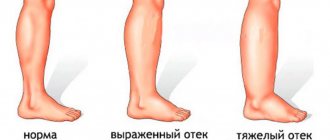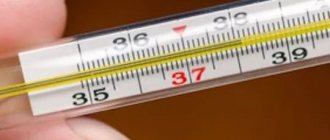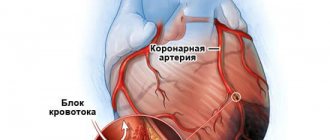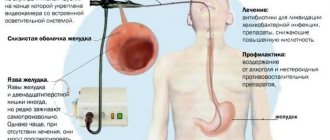The condition in which aching pain in the stomach occurs is characteristic of many diseases. Frequent stress, alcohol abuse, as well as an unhealthy and unbalanced diet can also provoke pain. If this unpleasant symptom occurs, it is important not to self-medicate, but to contact a medical institution where the required diagnostic measures will be carried out.
Types and nature of stomach pain
Depending on the course of the pathological process, the pain in nature for each disease will be specific, such as:
- mild and aching pain provoked by eating during chronic gastritis or malignant formation;
- pain in the form of cramps is more typical for functional stomach disorders;
- acute burning pain in the stomach is a sign of a burn to the organ mucosa due to chemical poisoning;
- aching pain in the stomach during a peptic ulcer, sharply intensifying to the feeling of a “dagger strike”, is characteristic of perforation of the ulcer.
As a rule, the appearance of pain of various types in the stomach area is associated with food intake or errors in diet. The pain may be accompanied by heartburn or nausea, and sometimes vomiting. The occurrence of these unpleasant sensations can have a variety of reasons.
Herbs
Various herbs will relieve stomach pain; it is better to drink them for prevention. An herb such as celandine can anesthetize the stomach. A teaspoon of the plant is poured with half a liter of boiling water and left for 45 minutes. The liquid is filtered and consumed 130 ml 30 minutes before meals. You can treat your stomach with a remedy based on St. John's wort. Pour boiling water over a spoonful of herbs and drink after 40 minutes (a tablespoon throughout the day). St. John's wort has an anti-inflammatory effect, so it will quickly reduce stomach pain.
Rose hips can cure frequent stomach pain. It is prepared as follows: pour a tablespoon of boiling water into a glass and boil for several minutes. When the liquid has cooled, honey is added to it and consumed during meals. Flax seeds, medicines based on plantain leaves and other herbs can soothe stomach pain.
Possible causes of stomach pain
The appearance of aching pain in the stomach can have origins both related to the pathology of the organ itself and to other organs of the abdominal cavity. The most common causes of pain in the stomach are:
- gastritis is an inflammatory process in the gastric mucosa, which causes the most frequent occurrence of pain;
- ulcer of the stomach and duodenum;
- benign tumors ( polyps ) cause pain, but in rare cases;
- malignant volumetric process - as it develops, it begins to manifest itself as aching pain in the stomach associated with eating;
- acute food poisoning , accompanied by pain, caused by spasm of the smooth muscles of the stomach;
- burn of the gastric mucosa , causing pain due to chemical aggressive agents entering the stomach;
In addition to pathology from the stomach, aching pain can be caused by a pathological process in other organs of the abdominal cavity. These may be the following diseases:
- diaphragmatic hernia - periodic migration of organs from the abdominal cavity into the chest through a pathological diaphragmatic opening;
- pancreatitis is an inflammatory process in the pancreas, anatomically adjacent to the posterior wall of the stomach;
- esophagitis - inflammation of the mucous membrane of the lower esophagus entering the stomach;
- functional stomach disorders, causing pain due to a malfunction of the nervous system;
- various pathological processes of the liver;
- diseases of the large intestine, in particular colitis, which gives intense pain in the upper abdomen, which subsides after 2-3 days, but remains and is permanent.
Painful sensations in the stomach can have other causes. As a rule, a pathological process in the digestive system, accompanied by pain, is most often a serious disease. But what to do if you have stomach pain and how to get rid of it?
In this case, the pain syndrome, regardless of the process of its occurrence, cannot be treated independently. First of all, you need to contact a specialist who, having found out the cause of this negative phenomenon, will prescribe treatment.
How to take medications
The most common question among people suffering from pain in the digestive system is: what to take for stomach pain at home? Pharmacy chains offer many medicines that help when your stomach hurts. They are divided into the following types:
- medications used in the treatment of duodenal and gastric ulcers;
- enzymes that improve digestion;
- antienzyme agents used in the treatment of inflammation of the pancreas.
Thus, for ulcers and gastritis, the doctor may prescribe the following names of tablets:
- "Maalox";
- "Almagel";
- "Flakarbin";
- "Gastal";
- "Gastrofarm";
- "De-nol";
- "Gastal."
You can relieve stomach pain and cramps with No-Spa. If there were errors in nutrition, a drug such as Omeprazole will remove the unpleasant symptom. When overeating, the drugs Gastromax and Cimetidine will help better. Omez and Controloc tablets can provide pain relief for ulcers and inflammation of the esophagus. The tablets “Festal”, “Creon”, “Pancreatin”, “Mezim”, “Triferment”, etc. can soothe the stomach from pain caused by eating excessive amounts of food. How many tablets should be taken per day and for how long, the doctor decides individually depending on the disease.
What examination needs to be done
Any pain localized in the stomach area requires mandatory examination, which consists of the following measures:
- collecting an anamnesis of the disease - when the pain appeared, what nature it is, how often and for how long it bothers you, whether it is associated with food intake or appears on an empty stomach, where it is most often localized;
- objective data - include examination of the oral cavity, whether there is plaque on the tongue and, if so, what color. The abdomen must be palpated to determine the presence or absence of pain, and in which area. Whether there is an enlargement of the abdominal organs or not, that is, the symptoms of the disease are revealed;
- laboratory testing - blood and urine for general analysis, feces for occult blood, gastric juice analysis, biochemical blood test, if indicated, blood for tumor markers;
- instrumental examination - ultrasound of the abdominal cavity, MRI, gastrofibroscopy.
As a rule, such an examination allows you to find out the cause of stomach pain and prescribe quality treatment. In some cases, during differential diagnosis, material is taken for a biopsy from the problem area of the organ and its subsequent histological examination.
Main reasons
A detailed description of the nature of the pain will help you determine the possible problem and find out why it hurts in the stomach area. The main culprits that cause acute sensations are:
- stomach ulcer or inflammation of its walls;
- dysfunction of the digestive organ.
There are a number of other reasons that cannot be ignored that can cause you to suffer greatly from pain:
- Food. Poor quality food negatively affects the functioning of the stomach and digestive system as a whole. Irritation of the mucous membrane and the occurrence of erosions are a consequence of unhealthy food, which is accompanied by painful symptoms, fever, upset stool, and flatulence.
- Emotional stress, prolonged state of depression.
- Taking medications, alcohol, tobacco.
- Thyroid diseases.
First aid for stomach pain
Providing first aid for stomach pain is important for many patients. Pain can occur even in people who do not have digestive problems.
This may be simple overeating, drinking alcohol or fatty foods in large quantities, an allergic reaction of the body to certain foods, physical fatigue or a stressful state. Minor periodic pain in the stomach can occur in women during pregnancy, when the growing uterus begins to put pressure on neighboring organs.
As a rule, such stomach pains are temporary and do not appear again when the cause is eliminated. What to do if you have a stomach ache? In this case, it is necessary to assist the patient by performing the following measures:
- put the patient in bed and unfasten the clothes that are compressing the abdominal area;
- to relieve spasms of the smooth muscles of the stomach, the use of non-carbonated mineral water or no-shpa tablets is recommended;;
- Drinking warm mint tea has a good effect in relieving pain.
If stomach pain appears due to a stressful situation, the use of mild sedatives, such as valerian, motherwort, has a beneficial effect on the stomach and relieves pain.
If pain in the stomach is caused by drinking alcohol, to relieve the pain you need to rinse the stomach with regular boiled water. After removing the remaining alcohol, you can use activated carbon and a spoon of vegetable oil. But if the pain does not go away within several hours, consultation with a specialist is necessary.
First aid
If a patient experiences severe stomach pain, he should take the following immediate actions that can alleviate the condition:
- take a lying position;
- remove tight clothing and belt;
- drink half a glass of mineral water without carbon;
- during the first time, refrain from junk food;
- cleanse the intestines and relieve tension.
You should not endure severe pain, as it may indicate the presence of gastritis, ulcers and other serious gastrointestinal ailments. Therefore, you need to call a doctor or contact him yourself.
Treatment with medications
Painful sensations in the stomach appear and depend on a number of reasons that cause this unpleasant state of the body. Drug treatment is aimed at eliminating inflammation in the mucous membrane of the organ and relieving pain in the stomach:
- for gastritis and stomach ulcers, accompanied by belching, heartburn, nausea, the use of drugs that reduce the production of hydrochloric acid and relieve irritation of the organ mucosa is indicated - Gastal , Almagel , De-Nol , Gastrofarm ;
- for pain caused by errors in eating against the background of gastritis with low acidity, accompanied by heaviness in the stomach - Festal , Mezim Forte , Enzistal , Pancreatin ;
- for painful sensations in the organ caused by poisoning and accompanied by intoxication of the body with fever and vomiting - Polysorb , Enterosgel , Smecta ;
- for inflammatory and infectious processes caused by microbial or viral infection - broad-spectrum antibiotics;
- pain in the stomach during chemotherapy, accompanied by diarrhea, flatulence as a result of the toxic effect of this treatment method - No-shpa , Almagel , Imodium , Espumisan .
It is possible to treat stomach pain with medications only on the recommendation of a doctor after determining the cause of the pain syndrome.
Folk remedies
Before you start treating the stomach with folk remedies, you need to make sure that there is no allergic reaction to natural components. Only after this is it allowed to begin alternative therapy. The following folk methods help with stomach pain:
- An effective remedy that is used when stomach pain is turmeric. Treatment with turmeric involves daily consumption of 3 grams of the product for two months. You can also use the following recipe from this plant, which helps with stomach diseases: pour a large spoon of turmeric with a third of a glass of boiling water, mix thoroughly, add milk to a glass and add honey. You should drink warm milk before going to bed.
- Bay leaf will help cope with painful discomfort in the digestive organ. To do this, you need to pour seven bay leaves with a glass of water and put it on the fire to simmer, add salt and boil for 15 minutes after boiling. When the medicine from bay leaves has cooled, strain it through cheesecloth and drink it in two or three times.
- The pain goes away after eating marshmallow. To do this, you can make a medicinal syrup based on marshmallow. It is necessary to grind two grams of the main ingredient, add water and wine alcohol in a ratio of 1 g to 45 g, add 60 g of sugar and leave to infuse. You need to drink marshmallow every two to three hours, two spoons. This folk medicine is effective for treating stomach pain in children. Only in the children's recipe should you mix marshmallow with fruit syrup. Children need to take the syrup a small spoon diluted in half a glass of water five times a day.
- You can remove an unpleasant symptom in the stomach with lemon juice. This effective remedy does not require much effort to prepare; just mix half a glass of water with two small spoons of lemon juice and a pinch of salt. Use in the morning, lunch and evening.
Salt treats intestinal disorders that are accompanied by stomach pain.
Recipes for alternative medicine for stomach pain are different, and in most cases depend on what disease caused them. For example, salt is used to treat intestinal disorders that are accompanied by painful discomfort in the stomach. To do this, dilute salt in the amount of half a teaspoon with 50 g of vodka. Drink the liquid in one gulp and start eating immediately. However, you should not abuse salt and especially vodka if you have diseases of the gastrointestinal tract, because in this case it can only do harm.
Treatment with folk remedies for acute and severe abdominal pain may include bowel cleansing. Cleansing with lemon and castor oil is carried out. To do this, you need to collect castor oil in a separate container at the rate of one drop of castor fluid per 1 kg of body weight. Next, add lemon to the castor colon cleanser in a 1:2 ratio, heat it and drink it with juice.
When your stomach hurts due to constipation or a disease such as gastritis, doctors may recommend sunflower and olive oils. Sunflower is able to envelop the walls of the stomach and protect its mucous membrane. Thanks to this property, the sunflower product can treat duodenal ulcers. To do this, you should take a tablespoon of sunflower remedy every day on an empty stomach.
You should drink olive oil every day for 3 months, a small spoon on an empty stomach.
Olive oil is effective for gastritis. With this disease, it has a positive effect on the functioning of the digestive system and liver. You should drink a small spoonful of olive oil every day for three months on an empty stomach. Since olive “food” has a specific smell and taste, if you have a sick stomach, you can use it as a dressing for various dishes.
The organs of the digestive system are closely interconnected, and if the functioning of one of them is disrupted, this can negatively affect the functioning of others. Milk thistle can heal the digestive organs. Folk remedies based on milk thistle can remove the source of inflammation in the stomach, improve the functioning of the digestive system and restore the mucous membranes of the gastrointestinal tract. But this plant is best suited for the liver, disturbances in the functioning of which can lead to functional disruptions throughout the body, including in the functioning of the stomach.
The medicine, used for liver problems and stomach pain, is prepared as follows: grind milk thistle seeds into powder, take 30 g and pour 0.5 liters of boiling water. Bring to a boil in a water bath until the amount of liquid is reduced by half. Strain the broth and drink a large spoon 60 minutes after the meal. The duration of therapy is one to two months - this is exactly as long as it takes to cure stomach pain for a long time.
You can quickly get rid of painful sensations in the stomach with hydrogen peroxide. In order for the results of treatment with this remedy to be successful, the following rules must be followed:
- The initial dosage should be minimal. Start with one drop of a three percent solution, diluted in two tablespoons. You need to drink the liquid two to three times a day, increasing the dosage daily until the number of drops is equal to 10 at a time.
- It is not recommended to drink hydrogen peroxide on an empty stomach or within two to three hours after eating.
- Hydrogen peroxide should be taken in cycles, i.e. after a 10-day course, you need to pause for five days and then resume the course with 10 drops.
Antiseptic Dorogov stimulant (ASD).
Non-traditional remedies for stomach pain are different. Surely few people know about such a medicine as the antiseptic Dorogov stimulant (ASD). This medicine has a wide spectrum of action and can treat various diseases. ASD is often used to prevent tuberculosis, cancer, liver and heart diseases.
To reduce stomach pain, it is recommended to take ASD-2, which is diluted with water and taken in the morning and evening half an hour before meals. When consuming ASD, it is important to include plenty of protein foods in your diet. Doctors strongly recommend that after taking ASD you abstain from alcoholic beverages, tobacco and other medications for about a couple of hours. Start taking ASD with 5 drops in the morning and 10 drops in the evening on the first day. Every day the number of drops increases by 5, and on the 7th day a break is taken. On an ongoing basis, it is recommended to take 35 drops of ASD in the morning and before bed.
If stomach pain does not go away after using medicines and folk remedies, then you should resort to other methods of treating gastric diseases. You should pay attention to the psycho-emotional state of the patient, because constant stress, irritability and nervousness are often the culprits of various stomach ailments, for example, “nervous” ulcers. Valerian is used for treatment, and it is also used for prevention. Valerian is used in the form of an infusion: you need to take two teaspoons of crushed dried roots and pour a glass of water over them. Boil for a minute and leave to steep for 60 minutes. The valerian remedy must be strained and taken in a spoonful three times a day after meals.
What to do for pain at home
If your stomach hurts, what can you do at home and how to relieve the pain? In this case, the use of folk remedies in the form of various decoctions or infusions gives a positive result in relieving pain. The most popular and most effective are the following recipes:
- drinking freshly squeezed cabbage juice (200 ml) with a tablespoon of honey;
- drinking freshly squeezed potato juice (200 ml) with a tablespoon of honey;
- drinking warm olive or sea buckthorn oil, 15 g 4 times a day;
- infusion of flax seeds;
- infusion of calamus root;
- infusion of chamomile, mint, calendula in equal proportions.
The preparation of infusions is carried out in the proportion of 1 tablespoon of medicinal raw materials per glass of boiling water, followed by infusion for an hour and consumption of 100 ml three times a day. The use of traditional medicine is also possible on the recommendation of a specialist.
What to do if your stomach hurts?
- If you think you have been poisoned, take a modern enterosorbent - for example, enterosgel. If you have severe pain or repeated vomiting, call a doctor. Do not take antibiotics under any circumstances: you will not feel better, but you will undermine the microflora.
— If you are bothered by even occasional pain, consult a doctor. You may be prescribed enzymes, or acid-reducing drugs, or antibiotics. And with functional dyspepsia, they can send you to a psychotherapist.
— Get enough sleep, follow a daily routine and diet, try to be less nervous. Often these “medicines” work best for dyspepsia.
When an emergency visit to a doctor is required
Sometimes, acute pain in the stomach requires emergency medical care, since the developing pathological condition can pose a threat to the patient's life. Acute conditions that require immediate consultation with a specialist include:
- perforation of a stomach ulcer - a characteristic feature is the appearance of acute pain, forcing the patient to take a certain position in order to reduce its intensity. The pain syndrome is accompanied by weakness, increased cold sweating, a drop in blood pressure and a rapid pulse;
- poisoning by chemicals entering the stomach from the outside;
- blunt abdominal trauma accompanied by acute pain.
Any acute pain in the stomach that persists for a sufficient time and is accompanied by a deterioration in the patient’s general condition requires emergency assistance. If the pain is minor and its relief is successful, a visit to a doctor is indicated as planned for diagnosis and quality treatment.
Only timely identification of the causes of stomach pain and prevention of its development will help the patient maintain his quality of life at a high level.
Nature of pain
To determine the nature of pain, it is necessary to clearly understand the symptoms and characteristics. Severe pain in the abdominal area is divided into three groups:
- Early. Pain in the first group begins almost immediately after eating. Early pain is characterized by a dull sensation and manifests itself in attacks. A feeling of relief comes after the bolus of food passes through the stomach and the first stage of digestion is completed.
- Late. The second group includes pain that begins 1-3 hours after eating. They begin gradually, with a barely noticeable feeling of discomfort increasing to severe painful spasms. They mainly occur after bowel movement.
- Hungry. The third group includes pain when hungry, which lasts at least 30 minutes or begins 4 hours after eating. They always bring unpleasant feelings of discomfort. The pain is sharp, severe. A cup of sweet tea can sometimes help ease the feeling of soreness.
Carrying out prevention
Prevention of pain involves following a diet. It is enough to arrange fasting days for yourself, during which it is forbidden to consume food and drink a lot of liquid. Additionally, you need to choose certain foods every week, as this will saturate the body with useful substances and prevent a feeling of heaviness in the stomach. This will not only prevent heaviness and discomfort, but also keep the body in good shape, preventing drowsiness and lethargy.
It is worth limiting the consumption of alcoholic beverages, replacing them with herbal teas or freshly squeezed juices. It is advisable to exercise, as physical activity makes the digestive system work much more actively.
General principle of prescribing medications and their effect
Doctors recommend, if your stomach hurts, the use of herbs in the form of decoctions and teas. Eating honey, sauerkraut juice, and fresh potatoes effectively eliminates symptoms. Folk remedies for stomach pain are blueberry tea, which is used instead of tea leaves and drunk chilled. It is effective to use a decoction of chamomile flowers, which should be done as follows:
- put a glass of inflorescences in a jar;
- add the same amount of boiling water;
- insist;
- strain;
- drink in three doses throughout the day.
Find out what gastric polyposis is.
Of course, the prescription of drug treatment is based on determining the exact diagnosis that is the cause of stomach pain. But to relieve the pain itself, doctors often prescribe symptomatic medications. Usually these are antispasmodic drugs if the pain is caused by gastrointestinal spasms, or antacid drugs if the patient has heartburn and inflammation of the gastric mucosa. Sometimes analgesics are prescribed, which are administered by injection in case of severe, unbearable pain.
However, in addition to the positive therapeutic effect, drugs can also cause unwanted reactions, so you need to take the choice of drugs very seriously. Adverse reactions to a particular drug can be found in the instructions for use, so you should study it carefully.
It should be remembered that antacids, for example, often cause nausea and constipation, and you should also refrain from overdosing on medications. The use of Omeprazole, in turn, is dangerous if pain and discomfort in the stomach are caused by Helicobacter pylori gastritis. By taking this drug, you reduce acidity in the gastrointestinal tract, thereby creating a favorable environment for bacteria to multiply and aggravate the development of the disease.
In turn, bismuth preparations are quite safe, they have a minimum of contraindications, they practically do not cause allergic reactions and are prescribed even to children from 4 years of age.
Ulcer
A symptom of an ulcer is also stomach pain. They appear after eating (after 30-60 minutes). At first, the patient feels slight discomfort, which intensifies with the intensity of food digestion. Gradually the nature of the pain becomes unbearable. When food passes into the duodenum, the body’s condition returns to normal. The next attack will begin immediately after lunch.
Perforated ulcer
This ulcer is characterized by through holes in the stomach or the initial part of the small intestine. Through the holes, the contents of the organs end up in the abdominal cavity. This process is accompanied by a sharp pain in the stomach, from which the patient may lose consciousness. Many patients compare it to being stabbed with a knife. The general condition of the body suffers from this, and the abdominal muscles become tense. The perforated form occurs with ulcers of the stomach and intestines.
The appearance of polyps is usually not accompanied by any symptoms. Sometimes there is pain in the pancreas. Dull discomfort indicates inflammation and erosion of the polyp. Intense pain indicates strangulation of a polyp with a long and movable stalk.
If many polyps are localized near the pylorus, then problems will arise with the exit section of the alimentary tract. This process is accompanied by rapid satiety, bad breath, nausea and vomiting.
Gastritis
If a person’s stomach hurts very badly and discomfort occurs immediately after eating, then we can almost certainly talk about the presence of chronic or acute gastritis. It is noted that this pathology is one of the most common causes of such discomfort. Gastritis occurs due to smoking and eating fatty, salty or spicy foods, poor diet and frequent stress, physical activity, alcohol consumption, as well as due to taking certain types of pharmaceuticals.
In addition to the fact that the stomach hurts very badly, a person begins to complain of nausea and increasing heaviness in the stomach, fatigue and an unpleasant taste in the mouth, increased sweating and irritability.
What is gastritis? This is an inflammation that affects the gastric mucosa. This disease significantly worsens health due to the fact that it contributes to the occurrence of irreversible consequences. The beginning of the development of gastritis can be noticed by the slight discomfort that a person feels in the stomach after eating. However, over time, the disease develops. This leads to more frequent occurrence of its symptoms. A person already begins to feel soreness and an unpleasant taste in the mouth after eating fatty, spicy, sour and salty foods. In addition, he complains of heartburn and nausea, gas and heaviness in the abdomen.
If your stomach hurts very badly immediately after eating, what should you do? If you experience such discomfort, you should seek help from a doctor. Self-medication is dangerous. The consequences in this case can be the most unpredictable. Only a gastroenterologist can offer the most effective therapy.
If your stomach hurts badly, what should you do? During attacks of gastritis, the patient must be provided with rest. It is also recommended to induce vomiting in him, and then put something on his stomach that will provide warmth (but not a hot heating pad). As a therapeutic therapy, a person is recommended not to eat for the next two days, limiting himself to drinking tea with lemon. After such a fast, liquid food should be gradually introduced. The patient's menu includes broth, puree soup and ground porridge.
If your stomach hurts very badly, what medications should you take to relieve the condition? Symptoms can be eliminated with antispasmodics or analgesics. But it is still recommended to approach medications with great caution. Taking them for gastritis can aggravate problems of the digestive system.
Over a long period, the patient will need to adhere to a certain diet, which includes foods recommended by the gastroenterologist. In addition, you should undergo the course of therapy prescribed by your doctor.
Stomach pain
Feelings of discomfort in the area where this organ is located are called gastralgia in medicine. These are acute or cramping pains caused by gastric pathologies, severe stress or existing ailments in other internal organs.
Pain that varies in location and intensity often indicates problems with the gastrointestinal tract. Such pathologies are almost always chronic, progress slowly and, along with their development, steadily become the cause of increased symptoms.
Therapeutic methods
Even before seeking medical help, the patient is able to independently take measures to relieve persistent stomach pain. First, you should give up carbonated and alcoholic drinks. Instead, drink clean, settled water and herbal infusions.
If there are attacks of nausea and vomiting, but the person is completely sure that he did not consume anything perishable, refuse food for seven hours. Most likely, these unpleasant symptoms are associated with liver or gall bladder problems.
For disturbing constant pain in the stomach, the doctor prescribes medications, such as “No-shpa”, “Famotidine”, “Amitrinthalmine” and others. They not only relieve pain, but also eliminate the underlying causes.
It is important to know that the use of any drug is prescribed only by a qualified doctor, and then after conducting an examination, familiarize yourself with the test results. Spontaneous treatment can do more harm than good, especially if this information is borrowed from open sources.
Causes of pain after eating
Diseases can cause painful symptoms. Among the most common are ulcers and gastritis. This also includes the appearance of polyps, tumors, and damage to the mucous membrane. Pain is caused by diseases of neighboring organs - it can radiate from the intestines, appendix, diaphragm, heart. Among the reasons there are also those not related to pathologies:
- binge eating;
- poisoning;
- pregnancy;
- stress;
- injuries;
- poor nutrition;
- physical exercise.
What to do if your stomach hurts? To begin with, it is advisable to eliminate the reasons that led to this situation. If the painful condition lasts for a long time and the situation is not clear, it is worth visiting a doctor for diagnosis. What to do first depends on the symptoms:
- in case of acute pain, call an ambulance;
- in case of poisoning, wash;
- change your diet;
- follow a diet;
- take prescribed medications;
- use folk remedies.
Often discomfort occurs in a woman expecting a child. Stomach pain during pregnancy occurs due to:
- hormonal changes;
- pressure from the growing uterus;
- overeating;
- hunger;
- toxicosis;
- poisoning;
- physical fatigue;
- stress;
- infections;
- ulcers;
- constipation;
- neuroses;
- heartburn;
- night cramps with gastritis;
- taking medications;
- abdominal muscle tension.
How to relieve stomach pain in a pregnant woman? To begin with, consult a doctor; self-medication in this situation is excluded - many medications are contraindicated. You should eliminate the causes of stress, walk more, and follow a diet. In agreement with the gynecologist:
- take medication;
- use traditional medicine;
- make teas with mint, motherwort;
- eat honey;
- take Borjomi mineral water.
Unpleasant symptoms after eating can appear when a person overeats or drinks poor-quality water or food. Painful signs will be aggravated by overeating before bed, disrupting your diet, or drinking little water. Why does my stomach hurt after eating? The cause may be diseases:
- narrowing of the esophagus;
- a hernia of the diaphragm that pinches the nerves;
- ulcers;
- polyps;
- neoplasms.
If your stomach hurts after eating, what should you do? When such a condition is not associated with eating disorders, it is advisable to undergo an examination in order to receive the correct treatment. For those who are used to overeating and eat on the go, the condition can be alleviated if:
- apply cold to the abdominal area;
- take a No-shpa tablet;
- drink three glasses of water;
- review nutrition;
- go on a diet.
A dangerous situation is when vomiting, heartburn, diarrhea, and loss of appetite are added to these symptoms - this requires the intervention of a doctor. Stomach pain and nausea occur as a result of:
- overeating;
- poisoning;
- consumption of harmful foods;
- gastrointestinal diseases;
- pregnancy;
- gastritis;
- ischemic disease;
- appendicitis;
- ulcers;
- infections;
- gynecological diseases.
What helps with abdominal pain in this situation? To quickly relieve pain, you can take No-shpa, Papaverine. If the diagnosis is unclear, consult a gastroenterologist or gynecologist. The treatment method depends on the reason why it occurred:
- in case of poisoning, drink plenty of water, take activated carbon;
- pregnant women should avoid places with a bad smell and chew seeds;
- In case of illness, take medications as prescribed.
The worst situation is when a person cannot even move due to an attack of stomach pain. This is life-threatening and requires immediate assistance. Sharp pain in the stomach occurs when:
- perforation of the ulcer;
- inflammation of the appendix;
- chemical poisoning;
- acute pancreatitis, gastritis;
- attack of ulcers at night;
- ectopic pregnancy.
First aid for abdominal pain, if it is acute or constant, is to call an ambulance. When the cause is not clear, it is better not to take medications until the doctors arrive - the symptoms will be clear, and it will be easier to make a diagnosis. What can you do? In this case, we recommend:
- organize rest for the patient;
- give water or warm tea to drink;
- refuse to eat.
When unbearable painful sensations appear, it is necessary to understand what caused them - disease, poisoning, food, living conditions. The different nature of pain requires its own approach to treatment. What will you need to do? It is necessary to describe in detail to the doctor all the symptoms, possible causes, the onset of the attack, and accompanying signs. When your stomach hurts badly, treatment determines the nature of the pain. It can prick, cause a feeling of heaviness, and be:
- pulling;
- cutting;
- paroxysmal;
- constant;
- hungry;
- burning.
The reason for the appearance of such pain is the inability of gastric enzymes to process ethyl alcohol. Irritation of the mucous membrane occurs, food is poorly digested and rots. All this can provoke the appearance of ulcers and gastritis. What to do when your stomach hurts after drinking alcohol? Experts advise:
- drink No-shpa;
- do rinsing;
- eat food that does not cause irritation - thin oatmeal, raw egg;
- drink a decoction of mint.
The appearance of symptoms of this nature may be associated with malignant neoplasms. Pain occurs with gastritis, provoked by viruses and bacteria, alcohol, and taking antibiotics. Dull pain in the stomach is caused by:
- poor quality nutrition;
- mucosal atrophy;
- gastrointestinal diseases;
- compression by the uterus during pregnancy;
- genitourinary infections;
- inflammation of the appendix.
What to drink for stomach pain? If it does not appear for the first time, its cause is known - you need to take the drugs prescribed by the doctor. When the symptoms are new, it is better not to take anything - the signs will not be smoothed out, and it is easier for the doctor to diagnose. What to do to alleviate the condition? Acceptable:
- limit food;
- drink Essentuki mineral water;
- give up alcohol.
Pain accompanied by fever may indicate serious problems. This is typical for acute forms of pancreatitis, appendicitis, cholecystitis. Stomach pain and fever appear when:
- infectious diseases;
- strangulated hernia;
- intestinal obstruction;
- helminthic infestations;
- food poisoning;
- pathologies of neighboring organs.
What to do with such symptoms? If you get sick and for a long time, in addition to pain, experience discomfort from prolonged diarrhea, it is better to call an ambulance. In order for the doctor to correctly assess the situation and make a diagnosis, it is necessary to explain in detail the course of the disease. Tell us when the temperature appeared, how long it lasts, and what its indicators are. Only then will the correct treatment be prescribed and, if necessary, hospitalization suggested.
A very uncomfortable condition in which pain is accompanied by belching. It appears as a result of the release of gastric gases. This can happen for several reasons - when eating fruit for dessert, sleeping or taking a bath after eating. Belching is provoked by soda, fast food intake, and illness. This symptom has specific features when:
- gastritis – rotten smell;
- inflammation of the esophageal mucosa - belching air;
- ulcer – sour;
- gallbladder diseases – bitter;
- pancreatitis - accompanied by stomach rumbling.
What to do when your stomach hurts and belching? If the symptoms are caused by serious diagnoses, only a specialist who has determined the cause can help. In other cases, it is necessary to implement the following measures:
- exclude soda from the diet;
- take your time while eating;
- correct behavior after eating;
- do not consume foods that cause fermentation.
Diarrhea occurs when taking antibiotics, food allergies, bacterial and viral infections. Stomach pain and diarrhea are caused by poisoning, malnutrition, and inflammatory processes. What to do in this case? You cannot treat yourself - the cause of diarrhea must be accurately established. Doctors prescribe:
- for overeating - Mezim;
- to relieve spasms - No-shpu;
- for ulcers, gastritis - Almagel;
- to eliminate pain due to increased acidity - Omez;
- in order to avoid dehydration - Regidron;
- for infection - remedies depending on the cause.
Stomach pain can be caused by a number of different reasons. Unpleasant sensations in the gastrointestinal tract can occur as a response to poor nutrition (spicy, fatty, salty, smoked foods), as well as stressful situations, excessive consumption of alcohol or toxic medications. Serious problems with the gastrointestinal tract, such as gastritis or ulcers, should not be ruled out; in addition, diseases such as pancreatitis and biliary dyskinesia also cause stomach pain.
In any case, to find out the true cause of stomach pain, you should consult a gastroenterologist, who will prescribe the necessary tests and studies to find out the exact diagnosis of your disease.
Overeating or eating large amounts of spicy and sour foods can cause stomach discomfort and heartburn. They can also be caused by excessive consumption of alcoholic beverages and coffee, and smoking. If stomach pain occurs immediately after eating or 1-1.5 hours after eating, this may indicate the possible presence of a peptic ulcer.
The appearance of pain in the stomach 2-3 hours after eating may indicate the location of the ulcer in the duodenum. Pain in the stomach on an empty stomach and night pain may be associated with the same problem. A possible cause of stomach pain, discomfort in the epigastric region and heartburn is the use of non-steroidal anti-inflammatory drugs (NSAIDs). They make the gastric mucosa more susceptible to the effects of acidic gastric juice2.
The stomach is a very sensitive organ, equipped with a huge number of nerve endings, and it reacts to adverse effects with a defensive reaction - pain, as if sending its “owner” a signal of trouble. This can be the result of various abuses and diseases of the digestive system.
On the other hand, the stomach is connected by nerve plexuses to other internal organs, and the pathological process in them can manifest itself as pain in the stomach both after and regardless of food. Therefore, all causes of stomach pain can be divided into groups:
- directly related to stomach diseases;
- related to eating errors;
- associated with diseases of other organs.
- The second place is occupied by a stomach ulcer; it is always accompanied by pain when the diet is not followed, and in the acute phase it is quite intense, manifesting itself even in response to dietary products.
- Acute food poisoning is also always accompanied by pain in the stomach, because acute bacterial gastroenteritis develops - the mucous membrane swells and becomes inflamed, and it reacts painfully to contact with food.
- Diseases of other digestive organs - the esophagus (esophagitis, tumors), pancreatitis, cholecystitis, hepatitis are very often accompanied by pain in the left hypochondrium, in the epigastric region; they arise as a result of visceral-visceral (interorgan) reflexes.











